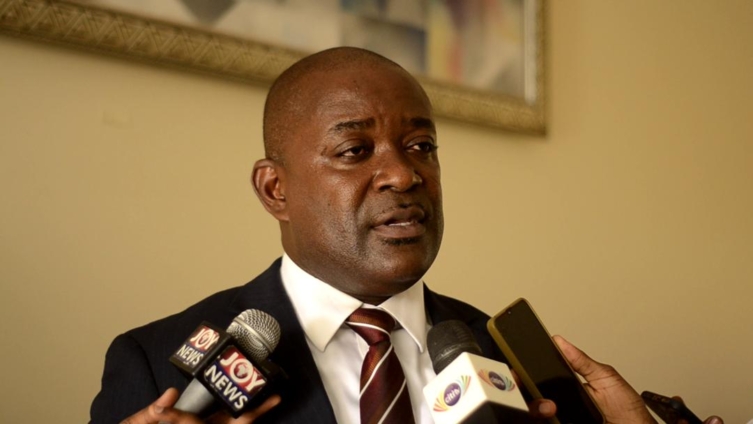The Ghana Tertiary Education Commission (GTEC) has lifted its ban on the processing of new accreditation applications for academic programmes from public universities, including technical universities.
The suspension which took effect from September 2023 was to sanitise the accreditation space, following persistent non-compliance by some institutions with the accreditation requirements.
Director-General of the Commission, Professor Ahmed Abdulai Jinapor, says new applications will be processed after clearing the backlog and granting re-accreditation to expired programs.
The commission says it will start new accreditation applications begging February 1, 2024.
“Informed by the work that we’ve done being able to clear the backlog, we’ve given accreditation to so many programs close to 1000 within the last quarter. The commission has come to the decision that we are going to lift the ban,” he said.
The 2022 Auditor-General’s report revealed a significant number of unaccredited programmes offered by some public universities in the country.
Authorities at the universities had argued they had initiated processes but delayed after the GTEC failed to expedite their application.
This subsequently saw a freeze on application for accreditation of new programs.
The Commission has been meeting with Vice-Chancellors of Technical Universities on measures rolled-out for effective implementation and enrollment of programs.
Prof. Abdulai Jinapor says the public universities must prove the relevance of new program introductions to the nation’s development during applications for accreditation.
GTEC has instituted an Acceleration Board to fast-track processes for new accreditation applications.
The Technical Universities’ Vice-Chancellors Association welcomed the decision and believes the board would help sanitise the sector.
Vice Chancellor of the Sunyani Technical University, Professor Kwadwo Appiah Adinkra is upbeat about the expedited process for accreditation.
“Currently, as soon as you put in an application for program accreditation, it doesn’t take long. You’ll hear from them at every stage that the process gets to, and you’re informed about it. Hitherto, it wasn’t as easy at that. Things are very well streamlined now,” he said.
Meanwhile, the GTEC is cautioning public academic institutions against running unaccredited programmes which would present dire consequences to students and graduates of the programs.
“We’re working with the national service secretariat to ensure that programs that are not accredited, graduates from such institutions do not undertake the mandatory national service. In fact, if it’s becomes necessary programs that are not accredited will hav graduates from such programs not receiving any employment,” Prof. Abdulai Jinapor added.
Latest Stories
-
Ghana and Seychelles strengthen bilateral ties with focus on key sectors
14 mins -
National Elections Security Taskforce meets political party heads ahead of December elections
18 mins -
Samsung’s AI-powered innovations honored by Consumer Technology Association
37 mins -
Fugitive Zambian MP arrested in Zimbabwe – minister
55 mins -
Town council in Canada at standstill over refusal to take King’s oath
1 hour -
Trump picks Pam Bondi as attorney general after Matt Gaetz withdraws
1 hour -
Providing quality seeds to farmers is first step towards achieving food security in Ghana
1 hour -
Thousands of PayPal customers report brief outage
2 hours -
Gary Gensler to leave role as SEC chairman
2 hours -
Contraceptive pills recalled in South Africa after mix-up
2 hours -
Patient sues Algerian author over claims he used her in novel
2 hours -
Kenya’s president cancels major deals with Adani Group
2 hours -
COP29: Africa urged to invest in youth to lead fight against climate change
3 hours -
How Kenya’s evangelical president has fallen out with churches
3 hours -
‘Restoring forests or ravaging Ghana’s green heritage?’ – Coalition questions Akufo-Addo’s COP 29 claims
3 hours

